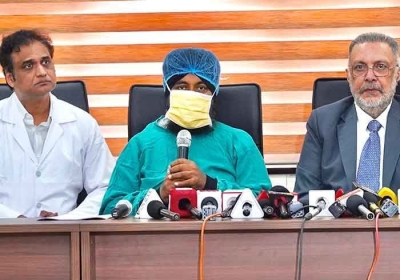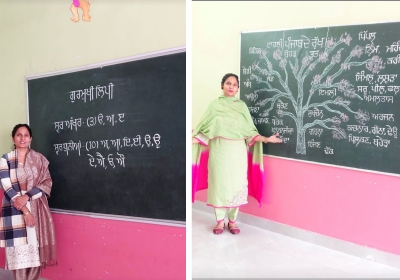
Sanjay Roy avoids death penalty
Why Sanjay Roy escaped the death penalty in RG Kar Rape-Murder Case
- By Gurmehar --
- Monday, 20 Jan, 2025
Sanjay Roy, a former civil volunteer, was sentenced to life imprisonment for the rape and murder of a trainee doctor at RG Kar Medical College and Hospital in Kolkata. The crime, which occurred last year, shocked the nation and led to widespread outrage. Many people expected Roy to receive the death penalty, but the court sentenced him to life imprisonment instead. This decision caused disappointment among many, and people wanted to know why the judge didn’t impose the death sentence.
The Judge’s decision
Sanjay Roy was found guilty of raping and murdering the postgraduate trainee doctor in August last year. On Monday, the additional district and sessions judge, Anirban Das, sentenced Roy to life imprisonment until his death. While many expected the death penalty due to the seriousness of the crime, the judge explained his reasoning for not giving such a sentence.
According to Advocate Rehman, who spoke to the media, the judge did not classify the crime as "rarest of the rare," which is required for a death penalty to be imposed in India. The judge believed that although the crime was heinous, it did not meet the criteria for the death penalty.
The judge also noted that the Central Bureau of Investigation (CBI), which had been handling the case, had requested the death penalty. However, the court decided that the crime did not fall under the “rarest of the rare” category, which would have warranted a capital punishment sentence.
In the case, Sanjay Roy was found guilty of raping and killing a doctor while she was on duty. The crime occurred on August 9, 2024, and it caused a great deal of public outrage. Many people expected the death penalty because of the nature of the crime. However, the judge made it clear that the case did not meet the standard required for capital punishment.
ALSO READ: Saif Ali Khan stabbing case: how Railway Police tracked suspect on train
ALSO READ: Delhi HC dismisses plea challenging symbol reservation for recognised Political Parties
The judge, Anirban Das, stated that the crime committed by Roy was serious but did not fall under the category of "rarest of the rare." This phrase is used in Indian law to describe crimes so extreme that they justify the death penalty. Because the judge did not believe this case met that standard, he chose to give Roy a life sentence instead of a death sentence.
The CBI had argued for the death penalty, but the court ruled otherwise. The defense lawyer, on the other hand, asked for a lesser sentence, such as a jail term. Ultimately, the judge decided that life imprisonment was the most appropriate punishment for Roy’s crime.
Roy’s claim of being framed
During the trial, Sanjay Roy claimed that he was being framed and that he had not committed the crime. He denied all the charges and insisted that he was innocent. Roy told the court that he had not committed any crime and that he had been wrongly held guilty.
Despite his claims, the court found sufficient evidence to convict Roy. He was sentenced to life imprisonment, which means he will remain in prison until his death.
The family of the victim, the young doctor who was raped and murdered, expressed shock and disappointment with the verdict. The mother of the deceased doctor said that she was dismayed by the court's decision and could not understand how the case was not considered “rarest of the rare.”
The victim’s parents were devastated by the loss of their daughter, who was on duty at the time of the attack. They believed that the crime was so serious that it should have resulted in the death penalty. The mother of the deceased doctor also suggested that there might have been a larger conspiracy behind the crime, but the court did not take this into account when making its decision.
The judge also directed the state government to provide compensation to the family of the deceased doctor. The court ordered the government to pay ₹17 lakh as compensation for the loss of their daughter. This money was to be divided, with ₹10 lakh for the doctor’s death and ₹7 lakh for the rape she endured.
The victim’s family was upset by the court’s ruling but was grateful for the compensation, which was intended to help with their financial and emotional distress. However, they still felt that the punishment was not severe enough for such a horrific crime.
The case of Sanjay Roy’s rape and murder of a young doctor has caused shock and anger across the country. Many people felt that Roy should have been given the death penalty, but the court ruled that the crime did not fall under the “rarest of the rare” category. Instead, Roy was sentenced to life imprisonment. The victim’s family was disappointed with the decision and called for a stronger punishment. Despite the legal process, the case has sparked intense debate about the adequacy of punishment for such extreme crimes and the application of the death penalty in India.





